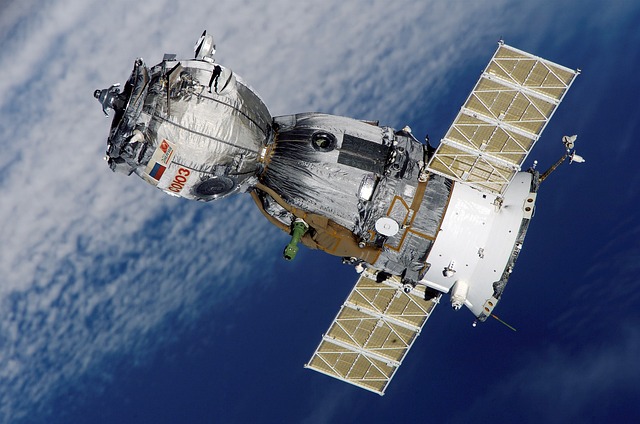Exploring the Financial Frontier: Space Tourism Investments
In a world where the boundaries of exploration are constantly expanding, space tourism has emerged as a thrilling new frontier for both adventurers and investors. This burgeoning industry, once the realm of science fiction, is now poised to become a lucrative reality. As private companies race to commercialize space travel, savvy investors are eyeing the cosmos for potential financial opportunities.

The Dawn of Commercial Space Travel
The idea of space tourism dates back to the early days of space exploration, but it wasn’t until the turn of the 21st century that it began to take shape as a viable commercial venture. In 2001, American businessman Dennis Tito became the first space tourist, paying a reported $20 million for a trip to the International Space Station. This milestone event marked the beginning of a new era in space exploration and investment.
Since then, several private companies have entered the fray, developing technologies and business models aimed at making space travel more accessible and profitable. Companies like Virgin Galactic, Blue Origin, and SpaceX have made significant strides in creating spacecraft designed for commercial use, attracting both public interest and substantial investment.
The Current Space Tourism Landscape
Today, the space tourism industry is on the cusp of a major breakthrough. Virgin Galactic and Blue Origin have both conducted successful test flights with civilian passengers, signaling the imminent arrival of regular commercial space flights. These companies are not just selling tickets to space; they’re creating an entirely new market with diverse revenue streams and investment opportunities.
The industry encompasses various segments, including suborbital flights, orbital experiences, space hotels, and even potential lunar tourism. Each of these areas presents unique investment prospects, from direct company stocks to related technologies and support services.
Investment Opportunities in the Space Tourism Sector
Investing in space tourism offers a range of options for those looking to capitalize on this emerging market. Here are some key areas to consider:
-
Direct investment in space tourism companies: Several space tourism companies are publicly traded or have announced plans to go public, allowing investors to buy shares directly.
-
Aerospace and technology companies: Many established aerospace firms and technology companies are developing components and systems crucial for space tourism, offering indirect investment opportunities.
-
Space infrastructure: Companies focusing on developing space stations, lunar bases, and other infrastructure necessary for long-term space tourism present another avenue for investment.
-
Satellite technology: The expansion of space tourism will require advanced communication and navigation systems, creating opportunities in the satellite sector.
-
Space-related ETFs: For those seeking a diversified approach, several exchange-traded funds focus on the broader space industry, including tourism aspects.
Analyzing the Risks and Rewards
Like any frontier industry, space tourism comes with its share of risks and potential rewards. The high costs of development, stringent safety requirements, and regulatory uncertainties pose significant challenges. However, the potential for high returns is equally substantial, given the industry’s projected growth and the premium prices commanded by space experiences.
Investors must carefully consider factors such as technological viability, market demand, regulatory environment, and company financials before making investment decisions. The industry’s success will largely depend on its ability to scale operations, reduce costs, and maintain an impeccable safety record.
The Economic Impact of Space Tourism
The ripple effects of a thriving space tourism industry extend far beyond the immediate players. From job creation in high-tech sectors to advancements in materials science and propulsion technologies, the economic impact could be substantial. Additionally, the industry has the potential to drive innovation in fields such as telecommunications, earth observation, and even climate change mitigation.
As space tourism grows, it could also lead to the development of new industries and services we can’t yet imagine, much like how the internet revolutionized numerous sectors. This potential for ancillary growth presents even more diverse investment opportunities for forward-thinking individuals and institutions.
Key Investment Insights for Space Tourism
• Look for companies with diverse revenue streams within the space sector, not just those focused solely on tourism
• Consider the long-term potential of space infrastructure and support services
• Pay attention to regulatory developments, as they will significantly impact the industry’s growth
• Assess the technological readiness and track record of companies before investing
• Don’t overlook the potential of established aerospace and tech companies entering the space tourism market
• Keep an eye on international developments, as space tourism is a global phenomenon with varying regulations and opportunities across countries
As we stand on the brink of a new era in human exploration and commercial opportunity, space tourism represents a unique and exciting frontier for investors. While the risks are significant, the potential rewards of being an early investor in this burgeoning industry could be astronomical. As with any investment, thorough research, diversification, and a long-term perspective are key to navigating this exciting new financial frontier.




